nlopchantamang.com
Digiceuticals: High-Tech Meditation Goes Mainstream
Shân Osborn
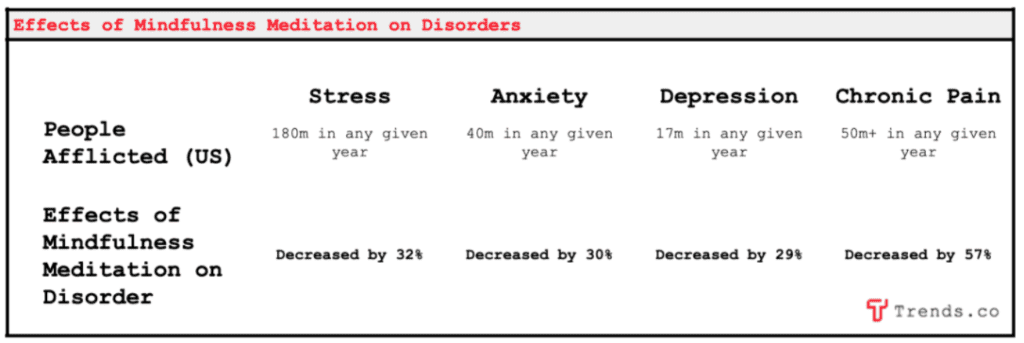
Source: Fortune Business Insights
The Signal: Investment in digital health care is booming. As of early August, CBInsights’ 2020 Digital Health 150 -- a list of global startups that includes 12 unicorns -- had raised $20B+. Mental health startups are leading the way -- equity investments reached a record high of $576m in Q1 of 2020, up 400%+ from Q4 of 2019.
Consumers are embracing mindfulness apps and meditation in droves -- they’ve been shown to have a positive influence on mental health. They are now starting to attract attention from both tech and regulators. As those practices spread, investors and entrepreneurs will have opportunities to develop even more powerful mental health tools.
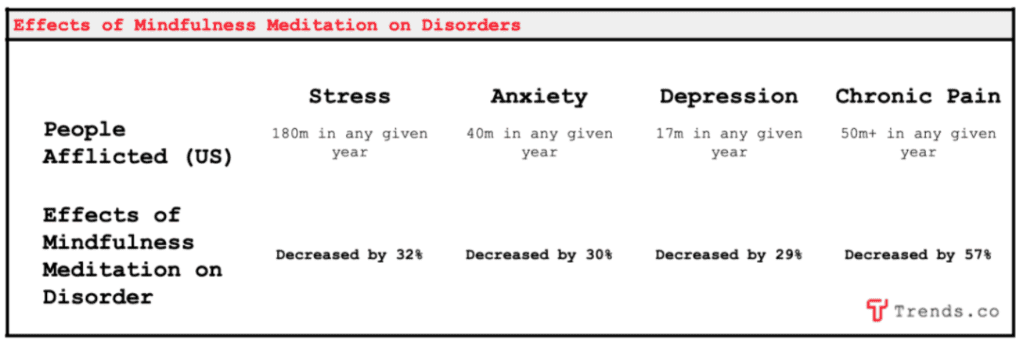
Enter digital therapeutics, or digiceuticals. By integrating virtual reality and biofeedback tech, digiceuticals are creating dynamic experiences that expand on today’s most popular mindfulness services.
Hardware and software advances have reduced the cost of VR tech, and consumers are growing more comfortable with wearables. Those trends give digiceuticals a chance to disrupt the market, with more personalized, accessible, and affordable mental health solutions.
The Opportunity: A handful of products are taking aim at mainstream audiences. One example is Healium, which calls itself the first “immersive media” app powered by users’ mental calm and focus. Healium uses biometric data from wearables to manipulate virtual worlds: Choose from pristine beaches or lush forests where flowers bloom as your heart rate slows.
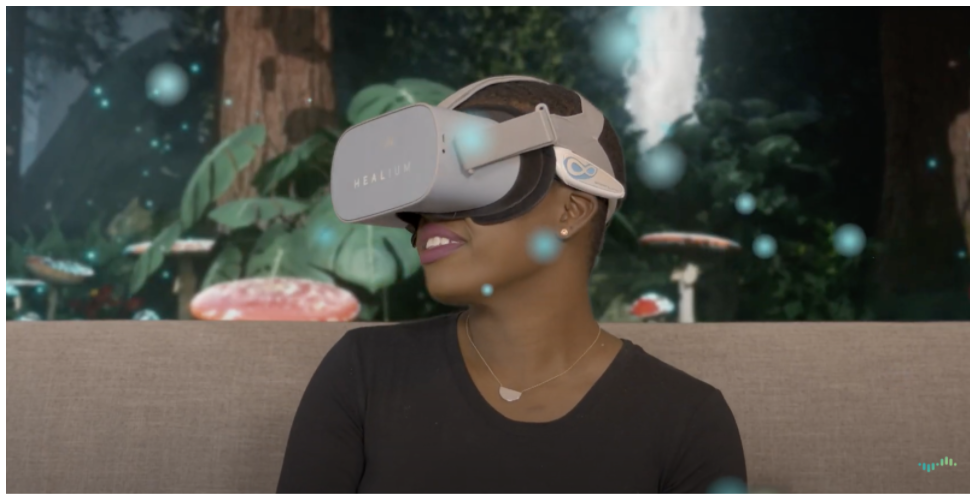
The nascent digiceutical market is just starting to take off. With cost reductions and new innovations, big business opportunities will emerge. We outline 4 areas of particular interest:
Specialization: The few players out there currently focus on reducing stress and anxiety. Next in line: The development of an affordable drug-free solution for the 50m+ Americans dealing with chronic pain each year. The Belgian company Oncomfort just raised ~$12m to scale its digital sedation solutions to help patients manage pain without medication.
Specialized at-home treatment options could cut out the rising costs of in-person therapy -- for everything from the fear of heights to PTSD.
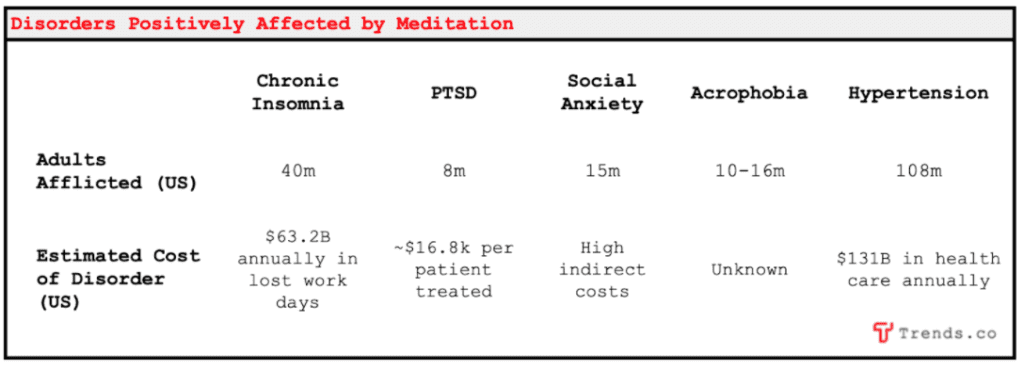
Partnerships: The possibilities for partnerships will soar as new tech comes onto the market. Healium is already collaborating with airlines to offer in-flight “virtual vacations.”
Entrepreneurs could work with virtual travel providers to create more new experiences for consumers. Imagine pausing during a virtual trip to Iceland to meditate under the northern lights, or participating in a world-class meditation retreat from your living room.
Meditation has been shown to aid patients battling addiction and undergoing chemotherapy. New entrants could collaborate with addiction-rehabilitation centers and oncology specialists to develop new treatments.
Movement Meditation: VR could take meditative practices like yoga and tai chi to the next level. Tai Chi Trainer XR enables users to fully immerse themselves from home, providing a VR instructor and even classmates. It’s only a matter of time before you will be able to take a virtual yoga class led by your favorite guru, set in the foothills of the Himalayas.
Gamification: New VR gaming options use the mind as a controller, providing release and increasing the user’s control over stress and anxiety. A prototype called Deep allows players to navigate through a serene underwater world where movement is controlled via breathing. Nevermind is an adventure game that rewards players who are able to calm their anxiety through meditation techniques.
You could develop social tracking platforms to encourage healthy competition in mindfulness. Users could share their progress as their meditation habits take off (think Strava for mindfulness).
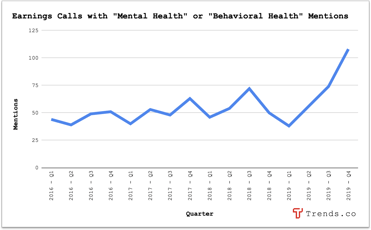
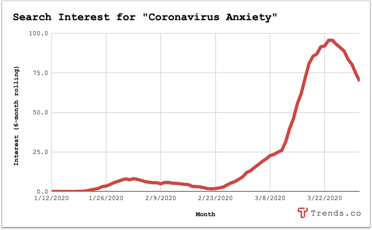
Leave a Comment